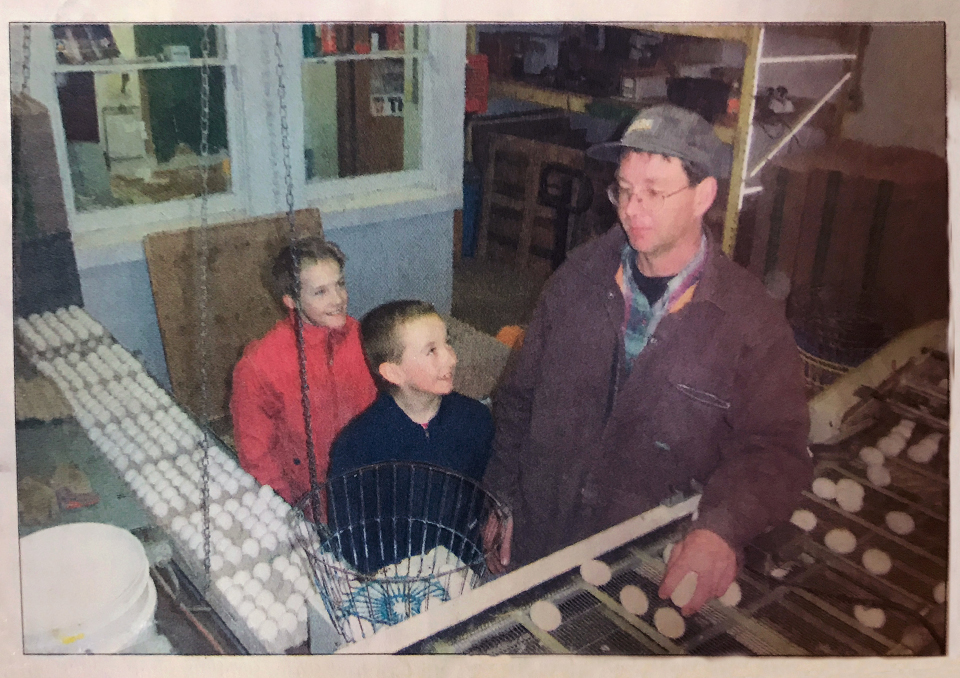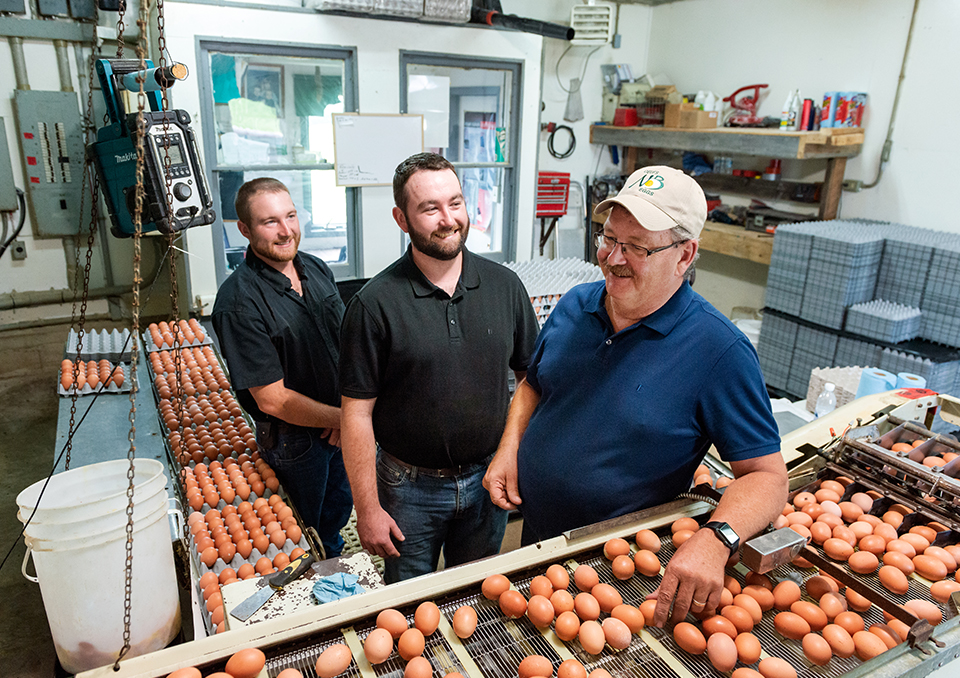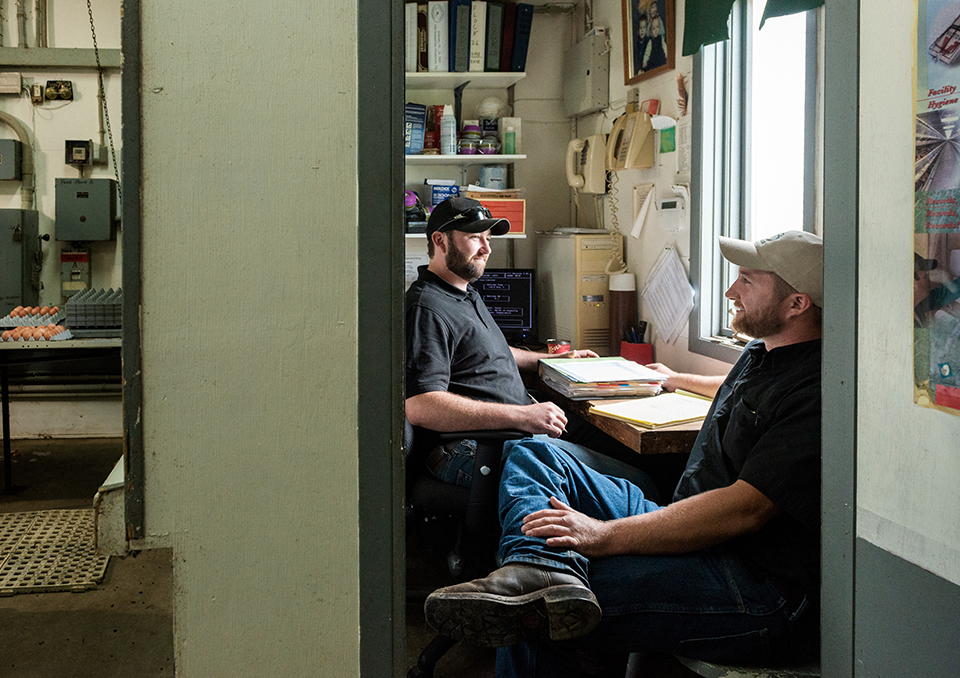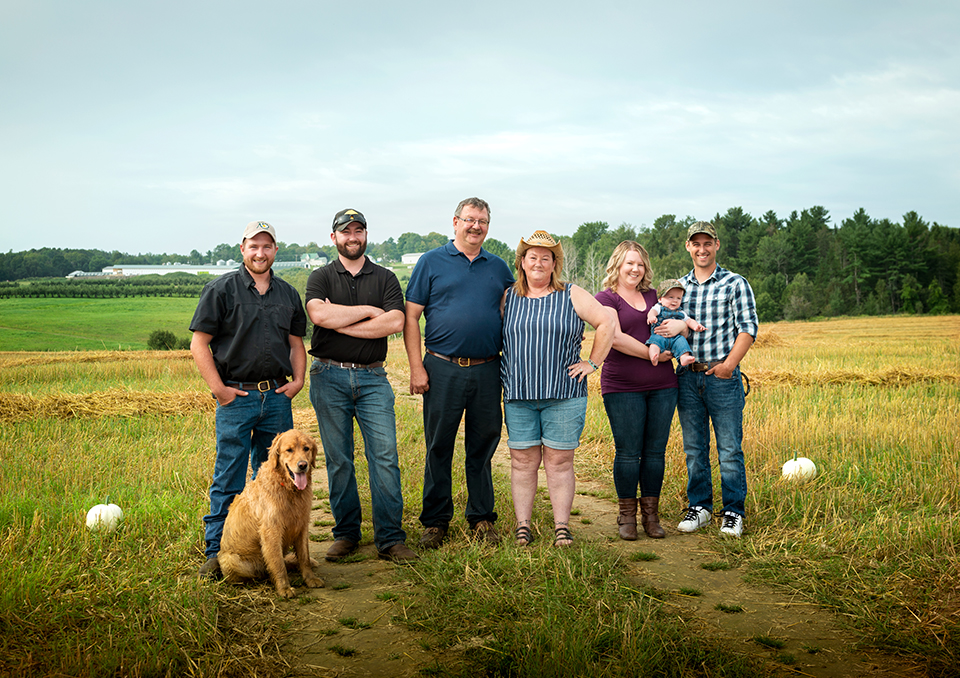
The sixth generation of Coburn farmers passes the torch
By Egg Farmers of CanadaSix generations of Coburns in Keswick Ridge, New Brunswick have passed their family farm from parent to child. Now a seventh generation is getting ready to take the reins amid an important moment in the history of every family farm—the time when the kids take over. We sat down with egg farmer David Coburn and his two sons, Glen and Tyler, on life in transition for this iconic 200-year old Canadian farm.
David Coburn—the patriarch of Coburn Farms—has been managing his family’s legacy for decades. It doesn’t belong to him, he makes clear.
“I’m just a caretaker for this generation,” David emphasizes, “and it’s my job to pass the farm on to the next generation better than I found it.”
David is too humble to say it himself, so we’ll say it for him: he got the job done. The farm he leaves behind is thriving—with a new, enriched colony barn on the way, a family museum filled with history and successful operations in commodities as diverse as apples, compost, pumpkins, and of course, eggs.
The process of transitioning ownership of a farm from one generation to the next is not a one-off project. It comes in degrees. In essence, it began when Glen and Tyler started working on the farm.


“I wanted to be a farmer since I was four years old,” Tyler says.
“We would watch Dad give tours of the farm to school kids, and I knew this was what I wanted to do.”
Both boys took to the family business like fish in water. David recalls a guest visiting the farm. Stepping away to check on the barn for a few minutes, David returned to find his young sons—less than five years old each—offering their guest a detailed tour of the family’s new composter.
As David transitions more and more of the farm to his sons, they are taking on larger shares of responsibility for operations. The family’s new enriched colony barn—an advanced hen housing design which offers hens comfort and access to amenities—is entirely Glen and Tyler’s project.
“I’m so proud that my sons want to do this,” David says. “Farming is not for the faint of heart.”
Coburn family stories bring that point home. David recalls with sadness once losing an entire crop of apples in a two-minute hailstorm. Embracing risk—“no risk, no reward,” as Tyler puts it—is just one of the three big lessons the sons take from their father.

What are the other two lessons?
“Patience,” says Glen.
“It takes patience to farm—to plant and grow and harvest, to run an egg barn and more.”
A great farm like the Coburns’ includes a lot under its roof—a lot of products, a lot of machinery, a lot of hands and talents and ideas.
And that’s the last great lesson Glen and Tyler have taken from their father.
“Out of every one hundred ideas you have, only one will be viable,” Glen says with a laugh.

But generation after generation of Coburns has been having bright ideas. That’s why they’ve made it this far. Every generation leaves its own imprint on the farm. And so, every generation—every caretaker Coburn—leaves behind a legacy for their own children to grow. It’s this kind of legacy that supply management protects.
“Supply management gives us stability, and allows me to leave a legacy behind,” says David.